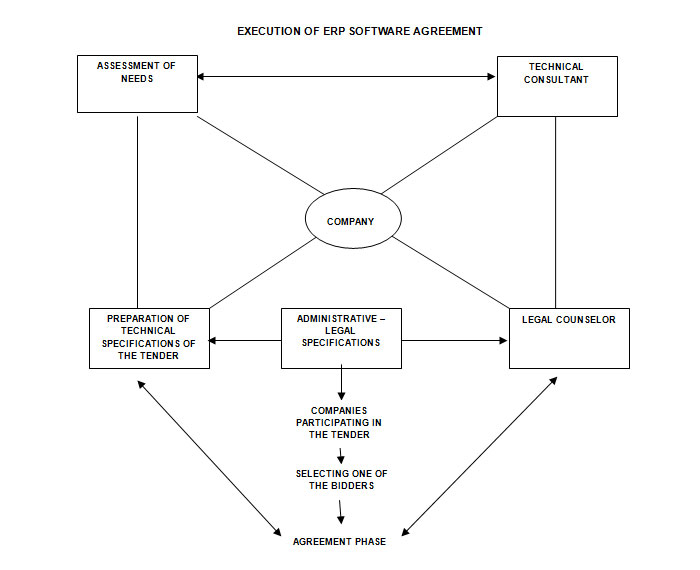Legal Journal
Written on 19 January 2015
ERP Software Project Tenders
Enterprise Resource Planning (ERP) software is an integral part of the automation plans that businesses will implement to keep up with the developing technology. ERP software constitutes the largest part of Enterprise Application Software (EAS).
If we think of a business automation system as a train, ERP software will be the locomotive of that train. Effective operation, enhancement and integration of each coach to be added to this train, that is to say, of each automation application, will be based on proper construction of the locomotive.
A company should conduct a thorough analysis to determine the type of ERP it needs. ERP software preference or adaptation of ERP software to suit a company’s needs is very different from uploading a package program to the server. It requires a complicated process. I would like to draw a diagram to simplify the foregoing.

The success of an ERP Project is primarily based on a Company’s correct assessment of its needs. To achieve this purpose, the Company will benefit a great deal from an ERP consultant within the company or, preferably, from an independent consultant outside the company. When deemed necessary, the Company may assign this ERP consultant as a technical controller at the implementation phase or even elect him/her as a member of the Project Management Committee.
After the company identifies its needs, these needs will be turned into a tender technical specification and go out to tender. The companies applying for the project will probably participate in the tender with a standard software of which the Intellectual Property Rights and/or distribution/processing rights they possess and proposals for adaptations specific to the Company.
The companies participating in the tender do not have to accept the specification as it is. What should be done is to state which needs they can meet, state the differences, if any, and finally expressly state with reservation any technical specifications they are not able to meet. Especially, if one part of the proposal is ERP software and the other part is the implementation process specific to the Company, it is better for Software companies to indicate them separately. If the Parties are open and honest to each other at the initial stages, the implementation/development stage to follow will run more smoothly.
Reaching a mutual understanding on the tender specifications will, in a way, serve as preliminary preparation for the blueprint document that the parties will prepare later on within the scope of the ERP Project.
Besides the technical aspect of tender specifications, the administrative-legal specifications are also important. The Company announcing a tender will specify its demands regarding the method of participation to the tender, presentation of draft agreements to be executed later on, penalty sanctions and warranties and the companies participating in the tender will state whether they will meet such demands.
At the end of the tender, the Company will conduct a thorough evaluation and select the most appropriate ERP Project proposal that suits its needs and invite that company for an agreement.
This second stage will require an administrative and legal process as challenging and detailed as the first.
Av. Haluk İnanıcı